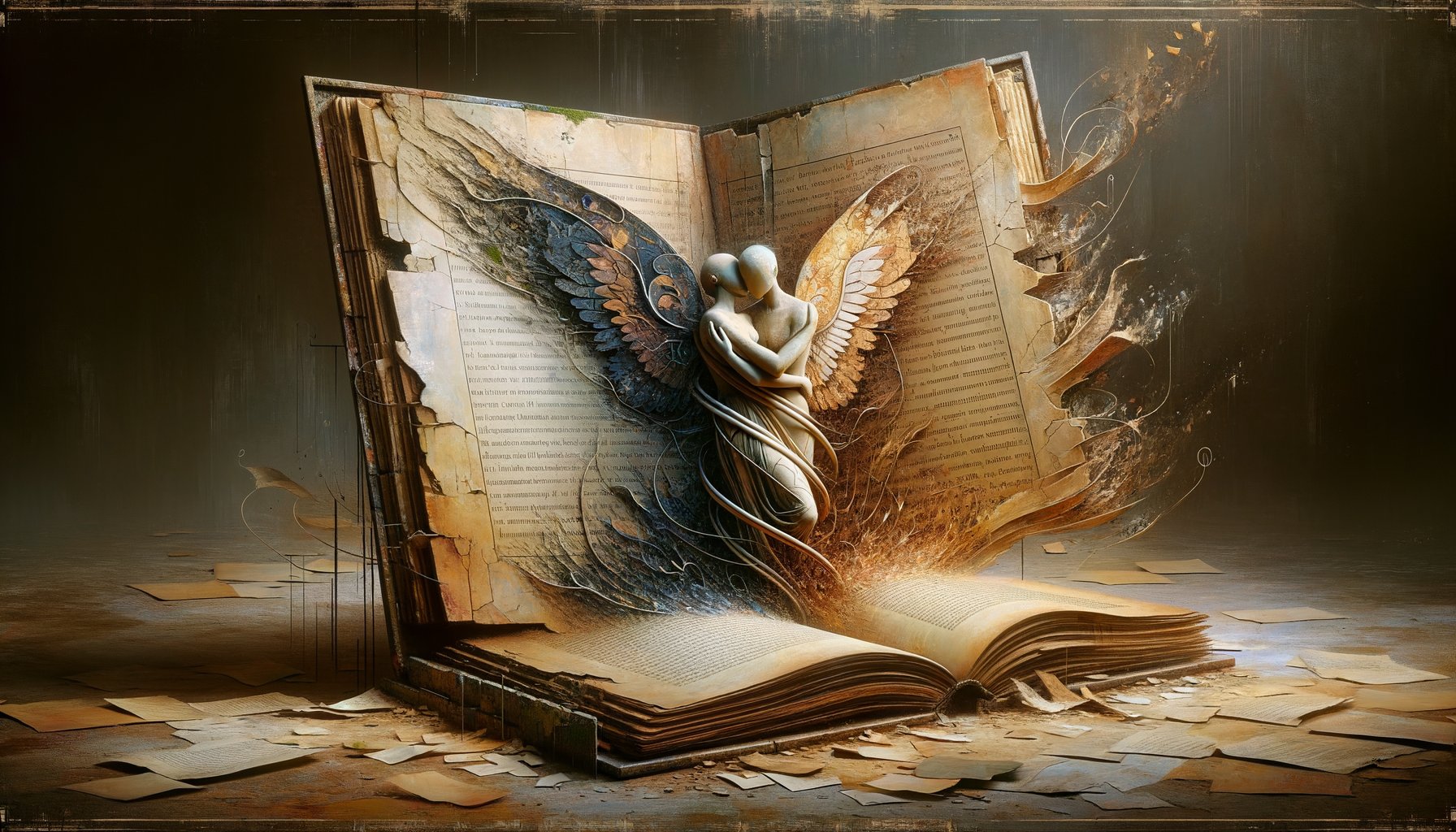Physical Address
304 North Cardinal St.
Dorchester Center, MA 02124
Physical Address
304 North Cardinal St.
Dorchester Center, MA 02124

Perfection is a myth, an elusive ideal that we chase relentlessly. It’s like the horizon – always in sight but never within grasp. In art and literature, this pursuit of perfection often takes a backseat, making way for the raw, unpolished beauty of imperfection. The allure of imperfections is something unique to human nature; it’s what makes us empathise with characters, appreciate artworks and connect with narratives.
The Japanese have a term for this – Wabi-Sabi. Rooted in Zen Buddhism, Wabi-Sabi is a worldview that embraces the flawed or imperfect. It finds beauty in things that are incomplete, impermanent and modest. This concept has found its place not just in Japanese tea ceremonies or Ikebana (the art of flower arrangement), but also in contemporary art and literature worldwide.
In visual arts, imperfections can take various forms – from asymmetrical compositions to unconventional mediums. These ‘flaws’ often add depth to an artwork, making it more relatable and engaging.
Take for instance Vincent Van Gogh’s ‘Starry Night’. This masterpiece defies the conventional rules of perspective and colour theory – yet it’s these very deviations that make it one of the most recognised paintings worldwide. The swirling skies don’t depict reality as much as they reflect Van Gogh’s tumultuous mental state at the time.
Closer home, Australian Aboriginal art embraces imperfections through its ‘dot painting’ technique where dots are used to create patterns and symbols representing ancestral stories. Each dot isn’t perfect, but together they create a story, a connection to the past. The beauty of these artworks lies in their imperfections and the rich cultural narrative they convey.
When it comes to literature, imperfection manifests itself through flawed characters and imperfect narratives. It’s these imperfections that make stories real and relatable.
Consider Fyodor Dostoevsky’s ‘Crime and Punishment’. The protagonist Raskolnikov is far from perfect – he’s a murderer racked with guilt and paranoia. Yet, it’s his very flaws that make him human, allowing us to empathise with him even as we abhor his actions.
In Australian literature, Tim Winton’s ‘Cloudstreet’ offers a poignant depiction of two imperfect families over two decades. Their struggles, failures, hopes and dreams resonate deeply with readers because they mirror our own imperfect lives.
So why do we find beauty in imperfection? Perhaps because it mirrors life itself – unpredictable, flawed and beautifully imperfect. Art and literature serve as mirrors reflecting this reality back at us; they remind us that it’s okay to be less than perfect.
Moreover, embracing imperfections can be liberating. It frees artists from the shackles of perfectionism, allowing them to explore new ideas without fear of failure or judgement. Similarly for consumers of art and literature – acknowledging the beauty in flaws can foster acceptance towards our own imperfections.
The beauty of imperfection lies not just in its aesthetics but also in its ability to evoke emotions – joy, sadness, nostalgia, empathy. It’s a reminder that it’s the journey that matters, not the destination; the process, not the product; the story, not just the ending.
So next time you come across an artwork or a book, don’t just look for perfection. Look for the imperfections – they might just be what makes it beautiful.